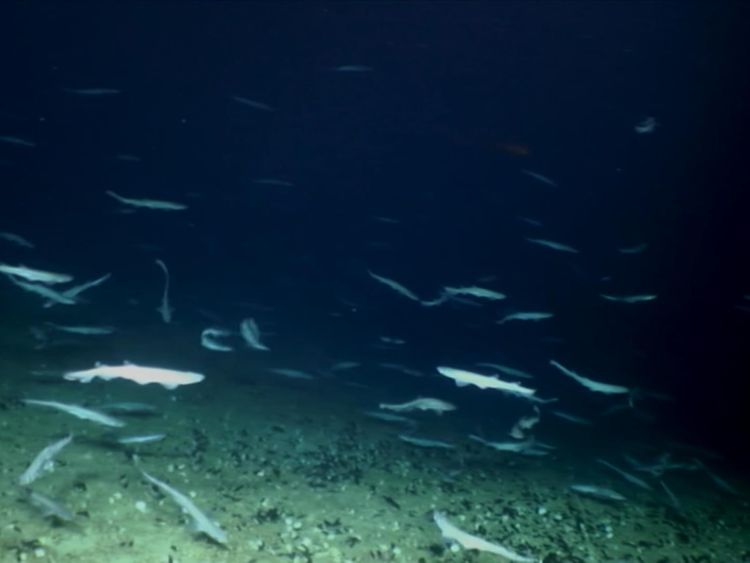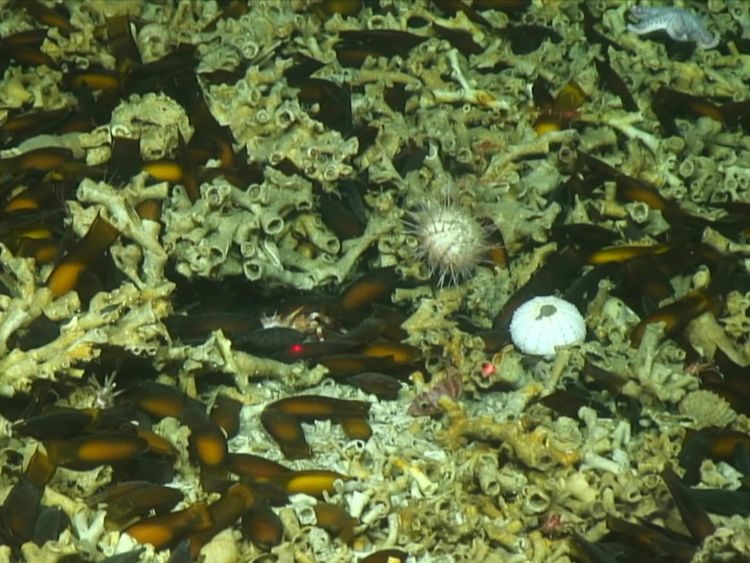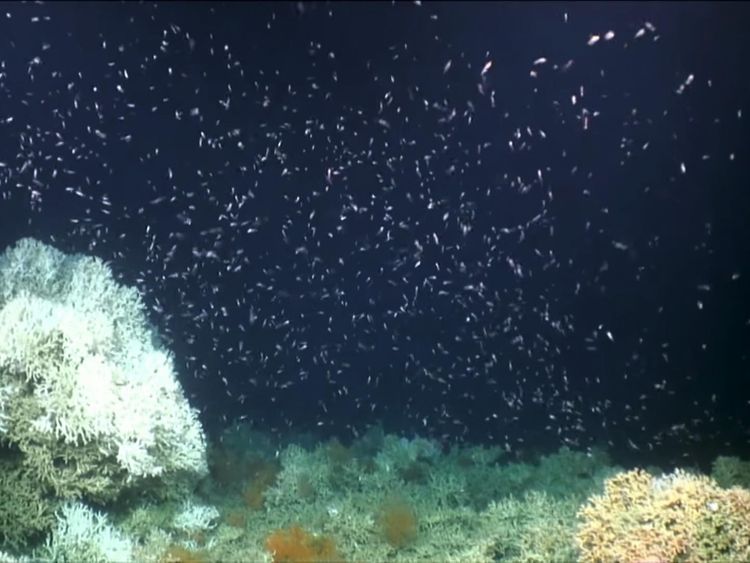
[ad_1]
A rare shark nursery has been found off the Irish coast by marine scientists exploring the country’s coral reefs.
Scientists working on the Irish government’s INFOMAR programme used a remotely operated vehicle to dive to depths of 750m, where the nursery was discovered.
According to the chief scientist, it is the largest ever found in Irish waters.

A ‘near-threatened’ Sailfin roughshark was also spotted
David O’Sullivan, of INFOMAR and chief scientist on the SeaRover survey, said: “We are delighted to report the discovery of a rare shark nursery on a scale not previously documented in Irish waters.
“This discovery shows the significance of documenting sensitive marine habitats, and will give us a better understanding of the biology of these beautiful animals and their ecosystem function in Ireland’s Biologically Sensitive Area.”

The sharks and eggs were discovered at depths of 750m
The rover filmed very large numbers of egg cases, often called mermaids purses, indicating females may be gathering in that area to lay their eggs. Such high concentrations are rare, say experts.
A large school of Blackmouth catshark, which are abundant in the northeast Atlantic, were spotted in the Irish waters, and it is thought the eggs are of this species.

Starfish and sponges were also seen
There was also a second and more solitary species, the Sailfin roughshark, which is listed as “near threatened” by the International Union for the Conservation of Nature.
Mr O’Sullivan said: “No pups were obvious at the site and it is believed that the adult sharks might be utilising degraded coral reef and exposed carbonate rock on which to lay their eggs.

The coral reef is home to a diverse range of species
“A healthy coral reef in the vicinity, may act as a refuge for the juvenile shark pups once they hatch. It is anticipated that further study of the site will answer some important scientific questions on the biology and ecology of deep water sharks in Irish waters.”
The nursery was found 200 miles off the coast in one of six offshore Special Areas of Conservation (SAC) designated under the EU Habitats Directive.
More from Republic of Ireland
They host a diverse range of marine animals, like starfish, crustaceans, sponges and sea fans.
This SeaRover survey is the second of three commissioned and jointly funded by the Irish government and the EU’s European Maritime and Fisheries Fund.
Source link